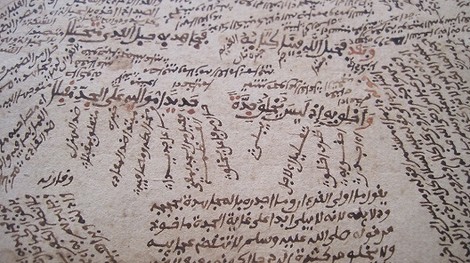Your podcast discovery platform
Curious minds select the most fascinating podcasts from around the world. Discover hand-piqd audio recommendations on your favorite topics.

piqer for: Globalization and politics Global finds
Neil Hauer is an independent analyst focused on Syria, Russia, and the Caucasus. Based in Tbilisi, Georgia, he served as senior intelligence analyst at The SecDev Group, an Ottawa-based geopolitical risk consultancy, for three years. He is presently engaged primarily on Russia’s role in the Syrian conflict.
Standard Arabic Is On The Decline: Here’s What’s Worrying About That
The Arabic language's relationship between its standardized form (Modern Standard Arabic [MSA], otherwise known as fus7a) and its wildly divergent dialects has long challenged linguists. Turns out, it's almost as challenging for its native speakers as well.
In this article, Hossam Abouzahr reviews the unenviable status of MSA in the contemporary Arab world and how the causes of its slide reflect a larger intellectual decline in its indigenous countries. While literacy in the spoken Arabic vernacular, the dialects, is growing, MSA has suffered harshly from the chaos and repression in the wake of the Arab Spring, reflected in the comparatively minuscule amount of texts translated into the language: Greece alone translates five times as many books into Greek as the entirety of the Arab world does into Arabic.
A large part of this decline can be blamed on Egypt, namely the military dictatorship of Abdel Fattah al-Sisi. The literary centre of the Arab world for much of the late 20th century, under Sisi's rule expression and publications have been harshly suppressed. Civil conflict has devastated Syria, and with it the country's Arabic academies and Arabic-only education system. Brain drain as a result of violence and repression has caused the most educated Arabs to move abroad.
The failure of Arab governments to promote their language in anything other than official political and religious contexts has been devastating. There's still time for the language to recover, but its increasing fragmentation into regional dialects, which are now receiving far more attention than MSA, harms prospects. It's hard to think that this could be the fate of one of the six official languages of the United Nations, spoken by half a billion people, but such is the state of the Arab world today.
Stay up to date – with a newsletter from your channel on Global finds.
